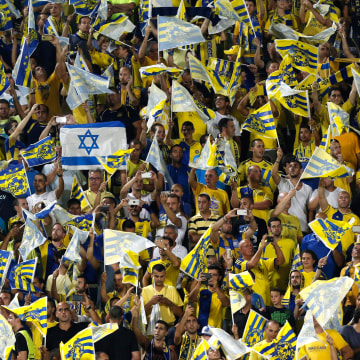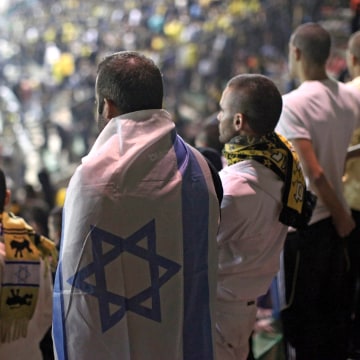TEL AVIV, Israel – The clash between secular and Jewish observers in Israel continues to grow, and has now extended to the sports field. Saturday soccer, a century-old tradition in the country, is under threat.
Here in the Holy Land the weekend is short, consisting of only one day, the Sabbath – a holy day of rest. It begins at sunset on Friday and ends Saturday evening.


With no other resting day, Israel’s 30,000 registered soccer players of all ages play on Saturday, while hundreds of thousands of spectators enjoy the game in person or on television. It is a tradition that never got an official stamp of approval from the courts or government.
But this cultural ritual is under threat because religious soccer players felt playing on the holy day robs them of their religious observance. For religious Jews it is forbidden to work, drive or do any physical activity on the Sabbath.
With the help of the Histadrut, Israel’s organization for trade unions, religious soccer players filed a court case claiming games played on the holy day contradict a law about hours, work and rest. The law, which dates from 1951, requires anyone wanting employees to work on a rest day – Muslims on Friday, Jews on Saturday and Christians on Sunday – must receive a special authorization from the Minister of Economics.
The players won their court fight on Aug 20, when judge Ariella Gilzer-Kats concluded that Saturday soccer games were a criminal offense, saying: “You can’t force the players to play on Saturday.”
That left the issue in the hands of Aryeh Deri, the newly-appointed Minister of Economics, who heads the Ultra-religious Shas party.
However, Attorney General Yehuda Weinstein decided Wednesday that soccer games should be allowed to continue on the Sabbath, based on “status quo agreements on religious-secular relations that have existed in matters of religion and state for decades.”
Shlomi Barzel, spokesman for the Israel Football Association, said Weinstein’s decision gives permission for Saturday soccer to continue for two months, during which a committee led by Culture and Sports Minister, Miri Regev, will try to resolve the issue permanently.
“If this committee doesn’t find a solution than things might go back to where we stand now,” he told NBC News.


Kobby Barda, spokesperson for the Israel Professional Football League, said banning Saturday games was not practical. “There is absolutely no other option than to play on Saturday,” he said. “If someone thinks that soccer needs to be played in Israel than the government will allow us to play on Saturday.”
However, religious lawmakers are staunch advocates for banning any secular activity on the Sabbath. Betzalel Smotrich, a member of the Knesset for the Jewish Home party, wrote to Deri saying that Saturday soccer was “an old custom” but “is an immoral practice which harms the Jewish state.”
And what do fans have to say? “Playing on Saturday has a historic value,” said Tomer Ashash, who heads the Maccabi Haifa soccer fans organization. “For the time being, the Sabbath is our only resting day and if there is someone that feels he can’t play that day than he should just not play.”
Some think a ban on Saturday soccer could strike a fatal blow to the sport because fewer fans would come to see games on weekdays and kids leagues could not be played while children are at school during the week.
Premier League director-general Oren Hasson suggested in an open letter that Israel should declare Sunday as its resting day. “While we respect every religion, we are convinced that religion and politics should not be part of any sport and the mix between them will lead to substantial danger to soccer in Israel.”



